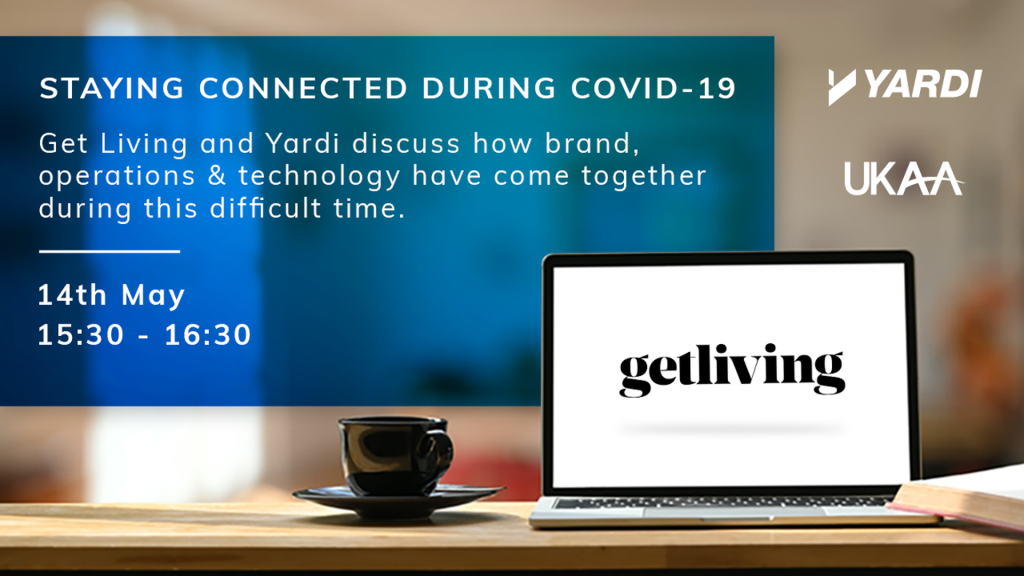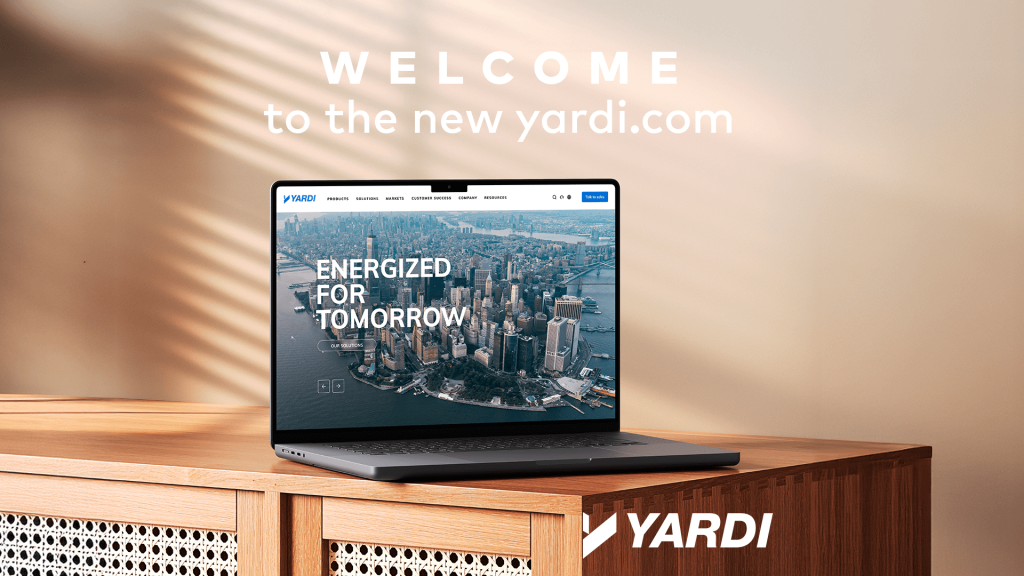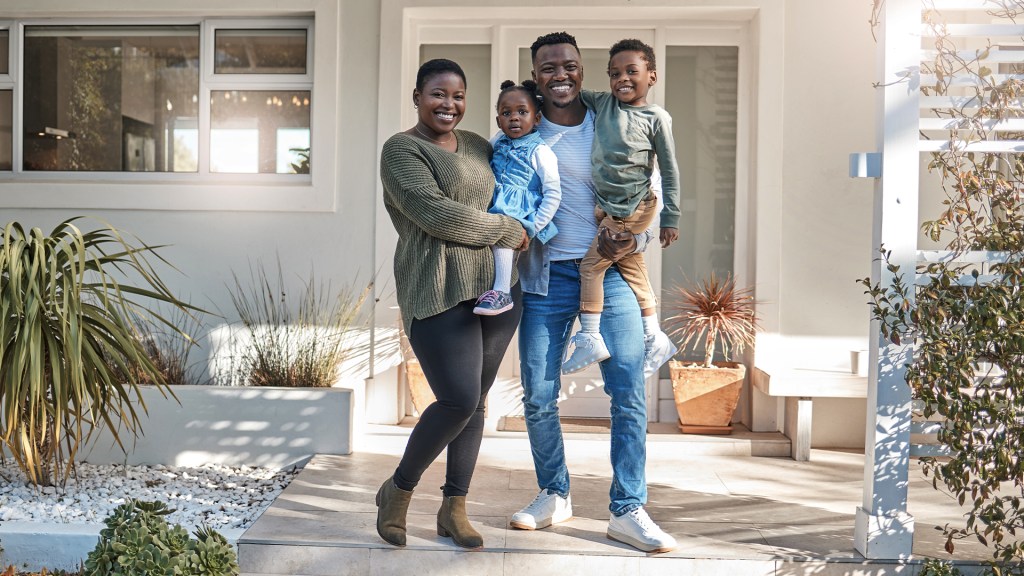By Yardi Blog Staff on May 20, 2020 in Global News
Yardi recently partnered with the UKAA and Get Living to deliver a webinar which explored the effects that Covid-19 has had on the build to rent market. Yardi’s special guests from Get Living, Chris Armstrong, Brand, Technology and Experience Leader and Ian Gibbs, Director of Neighbourhoods, shared their experience on how brand, technology and operations have come together through the pandemic.
Justin Harley, regional director at Yardi, kicked off the webinar by sharing some interesting technology trends that Yardi had collated throughout the pandemic. Harley highlighted that technology should be at the heart of any business as the need to be ‘digital-ready’ grows.
The count of virtual tours, online applications and resident app downloads are at an all-time high, and data analysis from Yardi shows that resident app usage has doubled since lockdown.
Underlying technology has become more essential than ever before. “Technology is a critical part of a business’s infrastructure, just like the physical foundations of any building” said Harley. He posed the question, “when we’re out of lockdown, will these tech tools stay crucial to businesses?”
Are you Match Fit?
The Get Living duo, Gibbs and Armstrong, scattered sporting analogies throughout the webinar as they compared their response to Covid-19 as becoming ‘match fit’.
“We’ve been working on becoming ‘match fit’ for some time now. Gibbs compared Get Living as being ‘at times close to the top of the table’ before new opponent Covid-19 arrived, challenging the team in more ways than they were prepared for.
Armstrong compared the Get Living team to being stood on the side lines, discussing the best tactics to take to win the match. He said their first step was to get the right people in the room and to talk it through about how to play as a team.
Thinking about the “rigour of Get Living’s off-season training”, the team analysed their choices and actions ahead of the pandemic. First and foremost, the ‘physical training’ of the staff, i.e. the stamina and commitment of the Get Living team, and the durability of their assets.
‘Mental performance’ was up next on the plan to become match fit. Gibbs expresses the importance of coaching and guiding teams through the uncertainty.
‘Physical performance’ made them consider enhancing preventative property maintenance schedules, whilst relying on established capex lifecycles and dilapidation preparations. They looked at their standard operating procedures and emergency operating procedures to ensure the safety and security of residents and staff.
The final analogy Gibbs spoke about was the comfort of your ‘training grounds’; the enablement of working from home and being able to thrive in your environment.
“Finding the right formation of how you operate in lockdown is essential. We’ve looked at 4-4-2, and 4-5-1 and we ended up at 6-4-0. We have really questioned how our front-facing teams have been deployed to compete.
Our crowd, i.e. the residents, are full-season ticket holders – they’re in it for the long run” Gibbs commented. He prompted the questions “are your residents engaged? are they happy? and are they supported? Technology has helped us find the right formations.”
Giving Back to the NHS
Gibbs and Armstrong delved into how they have given back to NHS staff and keyworkers during these difficult times.
“We have a preferential partnership with some trusts in the NHS which has a range of benefits and opportunities for NHS workers in the UK and internationally. We also reached out to Nightingale Hospital during the construction stages to offer our support – ultimately we weren’t needed (for all the right reasons) but our partnership with the NHS and its keyworkers has grown strength to strength” commented Gibbs.
Armstrong also said they’re very proud to have extended the partnership to Francis Crick Institute – the group of scientists working tirelessly to find a vaccine for Covid-19.
The Polls
During the webinar we asked the audience for their opinion on how they as individuals and also their residents, where applicable, have coped throughout the pandemic. We found that 67% of people have found working from home easy. Armstrong said the result resonated with the general feedback they’ve had from their own staff base.
Another question we asked was how often the audience have been connecting with residents. 28% said daily, 17% said weekly, 6% bi-weekly and positively, nobody chose monthly. This echoed Armstrong’s sentiment, “we’re talking to our residents constantly.” Armstrong explained that the notifications they’ve pushed through their resident app haven’t always been about their services, but about care packages for people who are self-isolating etc.
We also asked what the preferred method of communication was. The majority answer was a mix of email, mobile apps, text messages and phone calls.
Pivotal Tech
Armstrong said “we were able to move quickly with the virtual right to rent checks that the government put in place. We were able to add them into our leasing process which meant that our customers didn’t necessarily need to come into face to face contact with us. We’re a service driven company so we had to quickly adapt to new social distancing guidelines that meant we were still able to help people who wanted to move in. Technology was utterly pivotal and allowed us to flex our processes to be contactless.”
Linking back to the match fit theme, Armstrong stated, “throughout the whole process of this pandemic, we’ve been hugely proud to have been able to work so closely with Yardi as our technology teammate, and so we wanted to share our story with you today on the webinar.”
Watch the recording by clicking the image below:
If you would like any more information on Yardi, please feel free to email [email protected] or if you would like to speak to Get Living, get in touch here.



